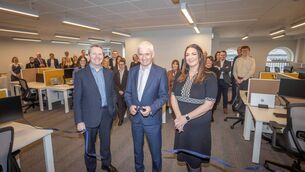Rising demand for flexible or 'semi-retirement'

Flexible retirement, also known as ‘semi-retirement’, allows an employee to reduce their working hours or take on a less senior position in the run-up to retirement.
Flexible retirement, a step-down retirement model whereby people transition into retirement by reducing hours and drawing on a pension as they approach their retirement age, is increasing across Ireland, with up to seven in ten financial advisors surveyed nationwide reporting a rising interest from clients over the last twelve months in this more gradual retirement model.
According to the findings of a recent survey of over 130 financial advisors nationwide undertaken by leading pension trustees, Independent Trustee Company, 14% described the rise of interest in flexible retirement as “significant.”







